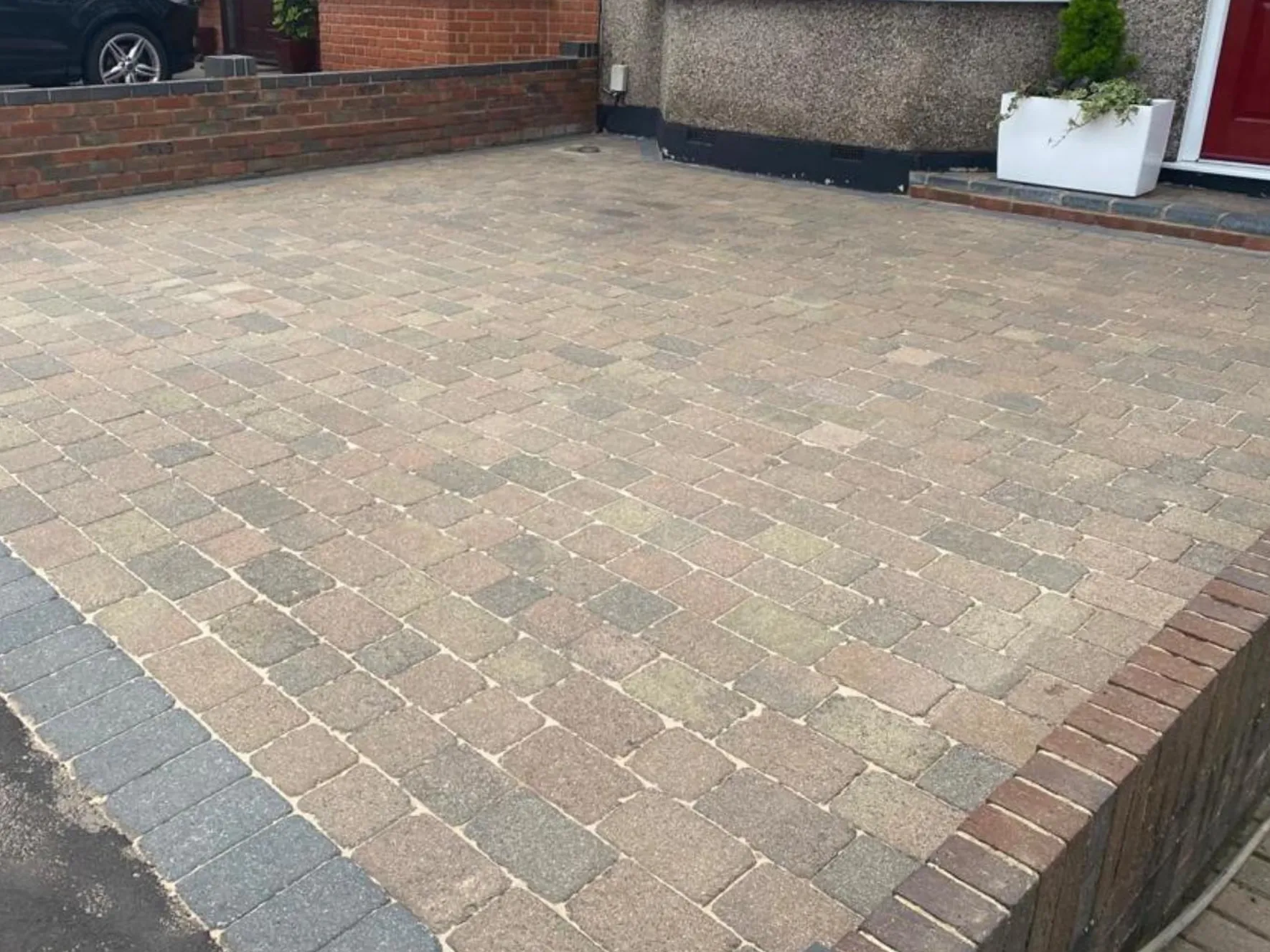Outdoor surfaces like paver patios, concrete driveways and stone pavers are beautiful and functional. But they are exposed to the elements and foot traffic, heavy traffic and outdoor activities every day. That’s why regular cleaning and seasonal maintenance is a must to extend the life and look of your outdoor spaces.
This guide will walk you through the importance of pavement cleaning service during different seasons, provide maintenance tips and cover the best practices to keep your concrete surfaces, paver surfaces and other outdoor areas looking their best all year round.
Why Seasonal Pavement Cleaning Is Important
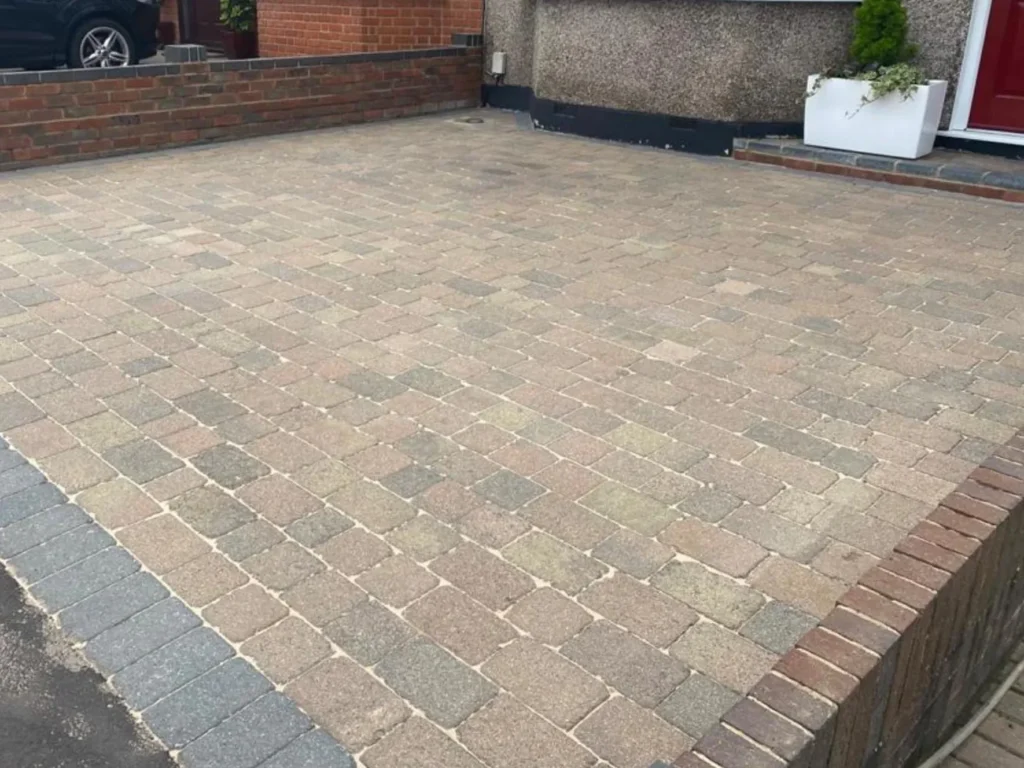
- Protection from Weather and Environmental Factors Outdoor surfaces face different environmental conditions throughout the year, such as extreme heat, cold weather, winter months and harsh weather conditions. If not maintained properly, concrete surfaces and paver installations can wear, crack and deteriorate. Regular cleaning combined with the right cleaning solutions keeps the joint sand between pavers in place and protects your surfaces.
- Preventing Water Damage and Erosion Proper cleaning and maintenance ensures proper drainage to prevent water from accumulating on paved surfaces. Water infiltration into paver crevices can cause long term damage especially during colder months when water freezes and expands. Clearing debris from joints with sand helps maintain the structural integrity of the surface and reduces the chance of water damage.
- Reducing Slippery Surfaces Moss growth, leaf litter and debris can make outdoor areas slippery creating a safety hazard especially during wet weather. Regular cleaning with a power washer, pressure washer or garden hose keeps your paver surfaces and concrete surfaces clean reducing the risk of falls due to slippery surfaces.
- Improving Aesthetic Appeal Keeping your paved surfaces clean improves the overall look of your outdoor spaces. Oil stains, dingy pavers and green growth from mould can make your driveway or patio look messy. Power washing or using mild dish soaps can remove stains, restore paver patterns and enhance the beauty of your property.
- Extending the Life of Paved Surfaces Paved surfaces like driveway pavers, clay brick pavers and outdoor porcelain tiles are a big investment. Consistent cleaning and seasonal maintenance prevents premature wear, cracks and erosion so you can enjoy your outdoor space for years to come.
Seasonal Maintenance Tips for Outdoor Surfaces
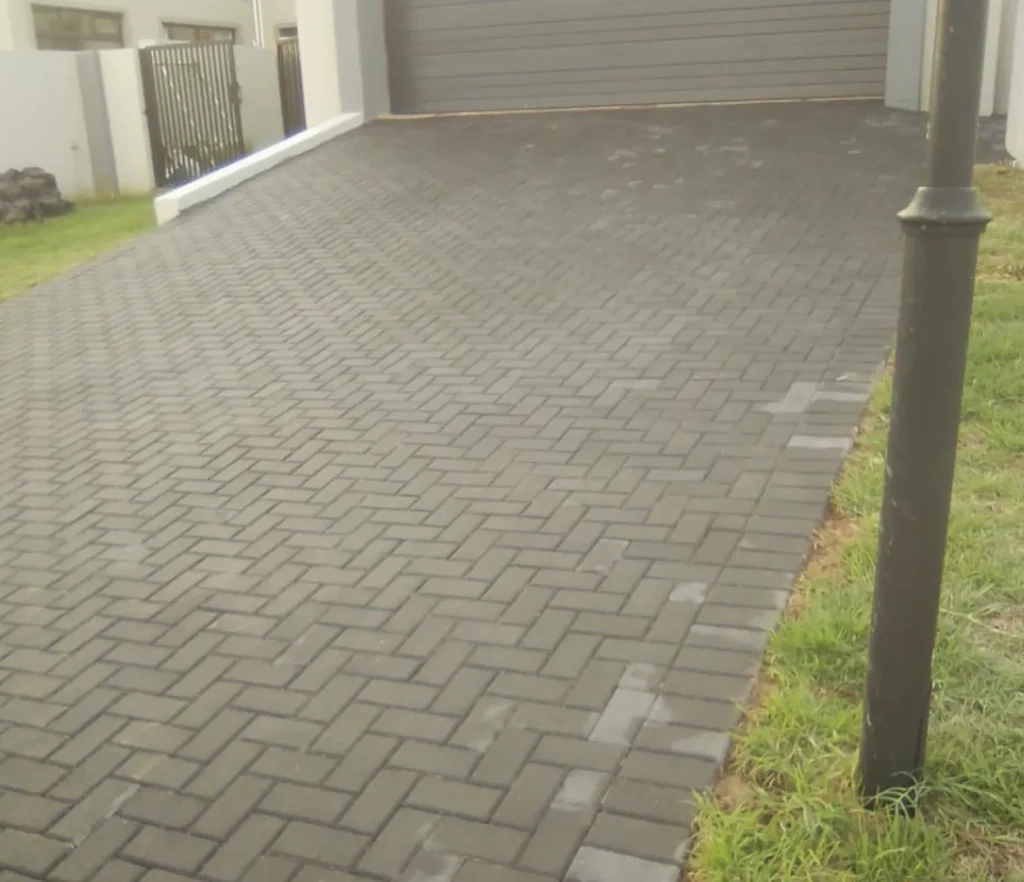
Spring
As winter ends and spring begins, inspect your paved surfaces for damage from the cold weather. Excess sand, dirt and debris should be cleaned with a power washer or pressure washer to prevent water infiltration and ensure proper drainage. Check for water damage, cracks and areas where joint sand has eroded. Fill gaps with polymeric sand to stabilise the joints to prevent weed growth.
Summer
Summer heat can bring dirt, oil and cracks from extreme temperatures. Use soapy water, soft brush or stiff brush to clean surfaces and get rid of any buildup. Remember direct sunlight can make paver surfaces overheat and cleaning harder. Best to clean in the morning or late afternoon when it’s cooler. Consider applying a layer of protection like a sealer to prevent further damage from UV and heavy traffic.
Fall
Fall leaves and damp conditions can bring leaf stains, mould growth and debris in the crevices of pavers. Regularly using a leaf blower and stiff brush can prevent these issues. Pressure washing can also be useful as the season goes on. Don’t forget to check for any damage such as cracks or loose pavers from temperature fluctuations.
Winter
Winter brings its own set of challenges like winter snow, cold weather and de-icing chemicals that can damage concrete pavers and paver driveways. Before winter hits, clean your surfaces thoroughly and apply a sealer to protect against harsh weather. Be mindful of how you use de-icing chemicals as harsh chemicals can erode your joint material. Keep surfaces clear of snow and ice to prevent water damage and water accumulation.
Tools and Techniques for Pavement Cleaning
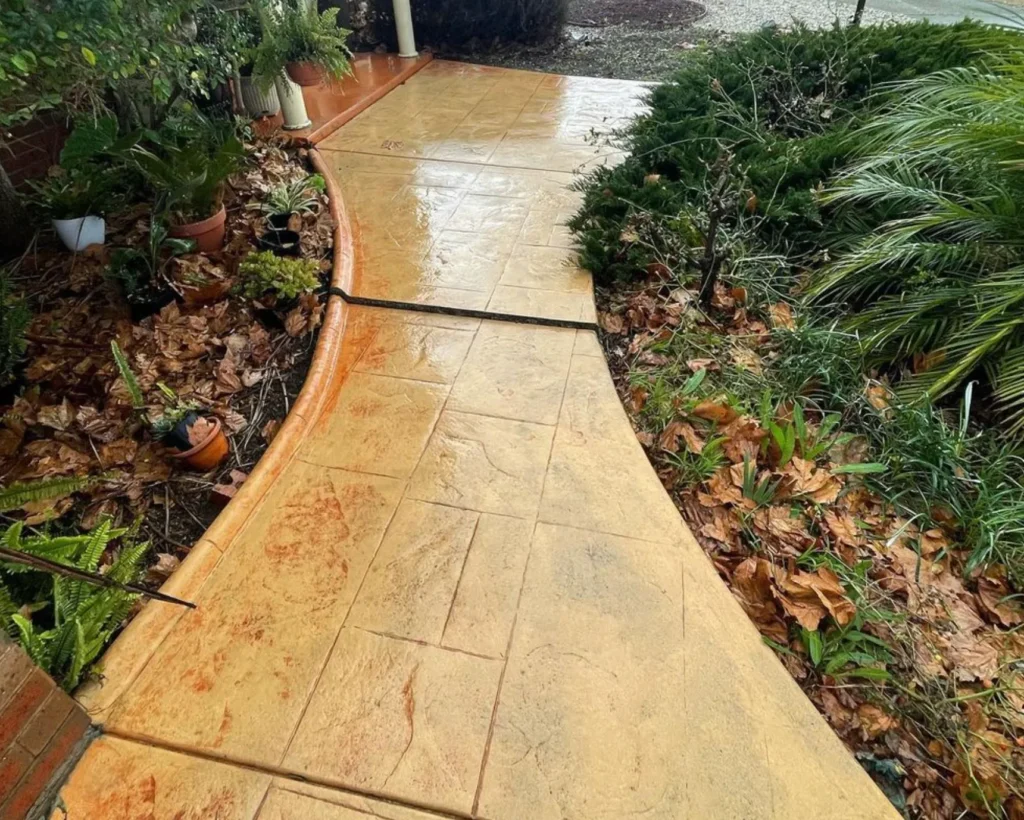
- Power Washing and Pressure Washing Power washing is great for removing dirt, grime and stains from outdoor surfaces. When using a pressure washer, make sure to use the right nozzle setting to avoid damage. Low pressure is recommended for paver surfaces, high pressure for concrete surfaces. Be careful not to use the wrong pressure setting and pavers will become loose or surface will be damaged.
- Brushes For smaller areas or stubborn dirt, a stiff brush, short handled brush or wire brush can help scrub off stains, dirt buildup and weeds in the joints. A soft brush can be used for delicate surfaces like clean brick pavers.
- Eco-Friendly Cleaning Methods If you don’t want to use chemicals, there are natural cleaning products like white vinegar and mild dish soap that can remove stains, dirt and mould growth. Vinegar solution can work on oil stains, soapy water can clean general dirt and grime without damaging the surface or the environment.
- Leaf Blowers for Debris Removal Keeping your paved surfaces free from leaf litter and dirt is easier with a leaf blower. Regularly clearing debris prevents slippery surfaces and keeps your pavers looking clean and sharp. This is especially important in fall and winter when leaves and debris accumulate more.
Problems
Weed Growth Weed growth between pavers is a problem if not looked after. Regular cleaning and joint sand stabilisers or polymeric sand will lock the pavers in place and prevent weeds from growing in the joints. Sweep excess sand into the joints after cleaning.
Moss and Mould Growth Moss and mould is a big problem in shady areas or damp conditions. Clean these areas regularly with natural cleaners or commercial moss removers to keep your pavers looking great.
Oil Stains Oil stains are common on driveway pavers and concrete driveways. Clean immediately with soapy water, a mild dish soap solution or a paver detergent to prevent the stain from setting into the porous material. For tough stains use a specialist cleaner.
Seasonal Pavement Maintenance
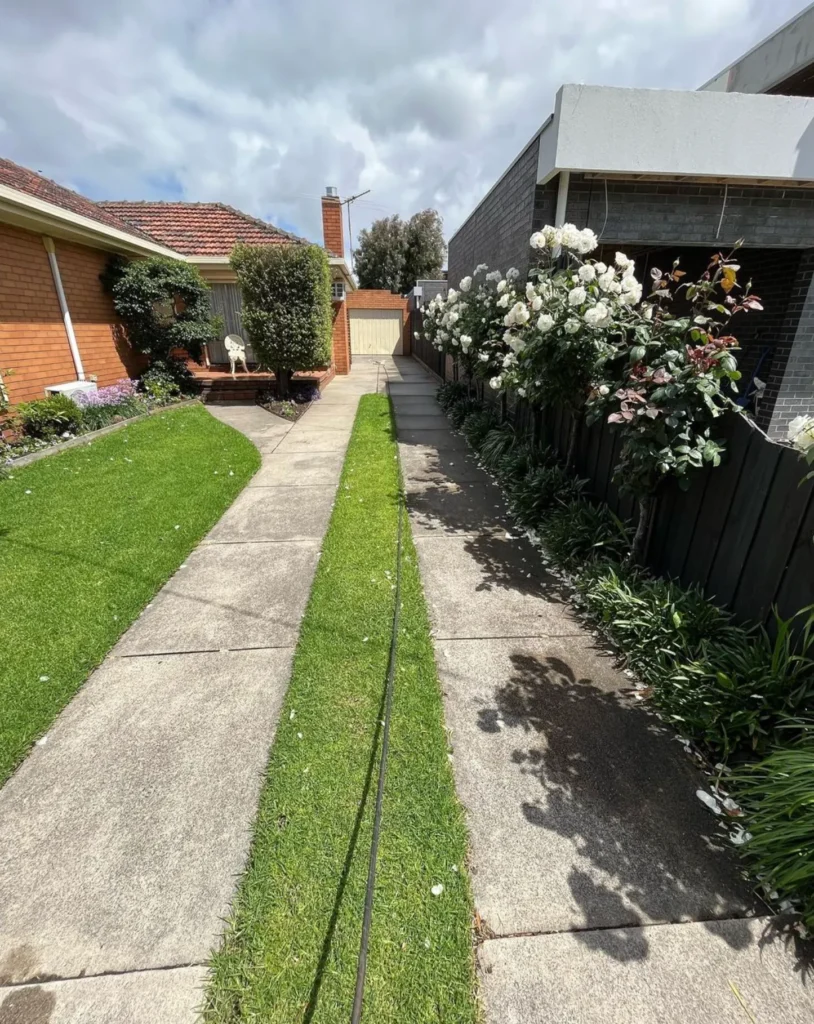
- Regular Inspections Regularly inspect your paver installations and concrete surfaces for any damage, cracks, loose pavers or water infiltration. Catching these issues early will allow for timely repairs and prevent further damage in extreme weather conditions.
- Sealing and Protecting Seal every few years for an extra layer of protection against stains, chemicals and weather damage. Especially for areas in direct sunlight, high heat and heavy traffic.
- Drainage Ensure your paved surfaces have proper drainage. Poor drainage will lead to water accumulation, which can cause erosion, soil erosion or slippery surfaces.
- Yearly Maintenance Schedule: Create a yearly maintenance schedule for your paved surface. This should include deep cleaning, re-sanding the joints and addressing any seasonal issues.
FAQ
How often should I clean my pavers?
Clean your pavers at least once a season to remove dirt and debris and prevent weed and moss growth. Annual deep clean with a power washer or pressure washer is recommended.
How do I clean oil stains from pavers or concrete?
For oil stains use soapy water or a mild dish soap. For tougher stains use white vinegar or paver detergent. Clean as soon as possible to prevent it from setting into the surface.
Can I pressure wash my pavers?
Pressure washing is safe for pavers as long as you use the right nozzle and pressure. It’s important to use low pressure to avoid damaging the pavers or displacing the joint sand.
How do I prevent weeds from growing between my pavers?
To prevent weed growth clean your pavers regularly and use polymeric sand or joint sand stabilizers to fill the gaps between pavers. These will lock the pavers in place and prevent weeds from growing in the crevices.
Do I need to seal my pavers and concrete?
Yes, sealing every few years will add a layer of protection to your pavers, against water damage, stains and weather. Sealing will also make them look better and easier to clean.
